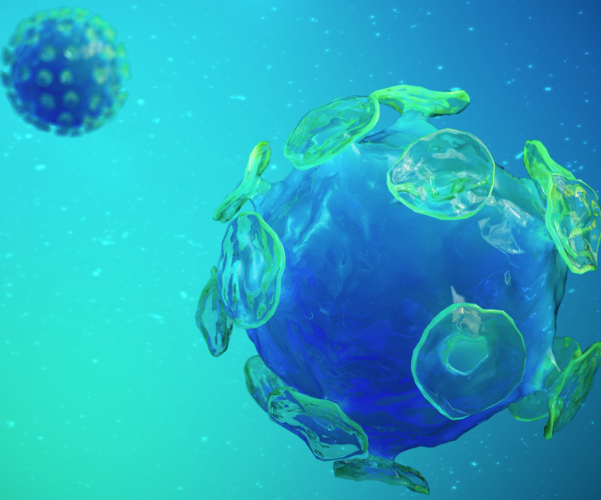Zinc Shown to be Effective Against Viruses on Plastic Surfaces
Using a body’s own trace element zinc inside solid plastics, The Netherlands’ Parx Materials has shown it reduces viruses five times faster than normal.
Rotterdam-based Parx Materials has developed an antimicrobial technology to make polymers resistant to bacteria, molds and biofilm by making use of a trace element with the utmost biological importance. The worldwide patented technology is inspired by nature--by the way the defense mechanism of the human skin protects us against germs and viruses. The trace element of zinc is vital for a good functioning of our immune system and by integrating this element in polymers Parx Materials is able to create an antimicrobial performance of 99.9% and higher.
Viruses do not multiply or proliferate on normal surfaces but are known to survive up to two-to-three days on plastic surfaces. Independent tests in accordance with the ISO 21702 norm using the Human Corona E229 virus has shown that the Parx Materials’ technology has a significant effect against this virus. The technology is reducing the virus five times faster than on normal solid plastic surfaces. The technology also brings down the H1N1 virus by 99,9% in just 8 hours in textiles fabricated with the technology.
The Parx technology reportedly is unique as it is the only effective broad-spectrum solution available today not using toxic substances, not migrating and not compromising the material in any way. That means nothing harmful or toxic is put inside the product, the material characteristics are not chan

ged, recyclability is not changed and there is nothing coming out of the material. Nothing is leaching out means also that the technology does not lose any functionality over time. As such, Parx says this is a true 100% safe and sustainable solution and with a high efficacy preventing the adhesion and proliferation of bacteria and preventing biofilm formation on plastic surfaces with now also a proven efficacy against viruses.
The virus tests were not executed with current Covid-19 causing virus as this is currently prohibited for commercial laboratories. But the E229 Coronavirus was selected as it has a good number of similarities to the Covid-19 virus.

Because of the unique characteristics of the technology it can be used in almost any plastic surface creating a surface with an intrinsic resistance to bacteria, molds, fungi, biofilm and viruses.
.
Related Content
-
US Merchants Makes its Mark in Injection Molding
In less than a decade in injection molding, US Merchants has acquired hundreds of machines spread across facilities in California, Texas, Virginia and Arizona, with even more growth coming.
-
Formulating LLDPE/LDPE Blends For Abuse–Resistant Blown Film
A new study shows how the type and amount of LDPE in blends with LLDPE affect the processing and strength/toughness properties of blown film. Data are shown for both LDPE-rich and LLDPE-rich blends.
-
How to Extrusion Blow Mold PHA/PLA Blends
You need to pay attention to the inherent characteristics of biopolymers PHA/PLA materials when setting process parameters to realize better and more consistent outcomes.










.png;maxWidth=300;quality=90)





